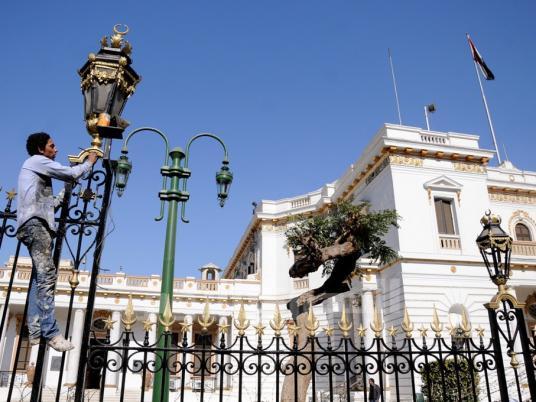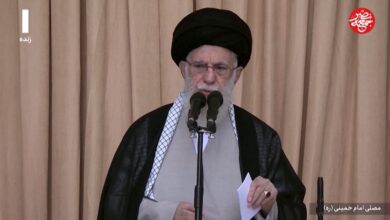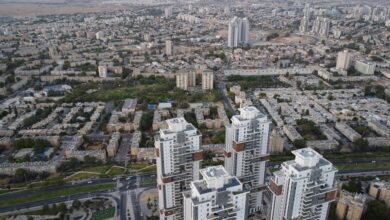
It has been dubbed the "Parliament of the Revolution," the "Brotherhood's Parliament" and a host of other names, and it is making front-page headlines in all of Egypt's newspapers. Final results of the parliamentary elections are published in today's papers, although there are discrepancies in the number of seats won by each party, and the People's Assembly will convene for its opening session tomorrow. Also featured in Sunday's top stories is the ongoing trial of ousted President Hosni Mubarak and his aides — the defendants' chief lawyer argues that his clients were not behind the controversial deal to export natural gas to Israel, claiming instead that it was the responsibility of Egyptian intelligence chiefs.
"Tomorrow, Egypt's most significant parliament begins its journey," reads independent Al-Shorouk's chief headline. A total of 498 elected representatives, along with 10 appointed MPs, are due to swear the oath on Monday, 23 January, in a process estimated to take up to six hours. Another Al-Shorouk headline reads "Parliament of the revolution without an absolute majority," while independent Al-Tahrir reports: "42 percent of the People's Assembly belongs to the Brotherhood."
Al-Shorouk, citing the High Judicial Elections Committee's results, lists the Muslim Brotherhood's Freedom and Justice Party (FJP) as having the largest number of seats — 228. The Salafi Nour Party reportedly won 124 seats, the liberal Wafd Party 38 seats, the liberal Egyptian Bloc coalition 34, and the moderate Islamist Wasat Party 10 seats.
Differing election results are published in state-owned Al-Gomhurriya. Under the headline "Parliament appears and arises," Al-Gomhuriyya says that the FJP have 223 seats, Nour Party 115, Wafd Party 41, the Egyptian Bloc 40, and Wasat 10 seats. Other papers publish results that are different again.
In Al-Tahrir the chief headline pertains to the People's Assembly assuming the law-making powers that had belonged to the ruling military junta: "The legislative authority of the Supreme Council of the Armed Forces (SCAF) expired yesterday… Any SCAF-issued law is illegitimate from today onwards."
Independent Al-Dostour lists the top 10 legislative issues facing the People's Assembly. According to the newspaper, these include: issuing a law for the trial of (corrupt) ministers, achieving justice for those injured or martyred during the revolution, restructuring the Interior Ministry, liberating the media from state control, establishing an amnesty for all political prisoners, regulating the construction of mosques and churches, protecting public and private liberties, establishing a minimum and maximum wage, ensuring the independence of the judiciary, and re-evaluating military-related laws.
In Al-Shorouk a news column declares "Mubarak in prison, opposition in parliament."
In its coverage of the ongoing Mubarak trial — of the fourth day (Saturday) of hearings on the charges of corruption and mismanagement of public assets — Al-Tahrir runs a headline about the ousted president's lawyer: "[Farid] al-Deeb continues with his surprises." The article cites Deeb's allegations that the natural gas deal with Israel was the responsibility of Intelligence Chief Omar Suleiman, not Mubarak. Deeb also claims that [fugitive-billionaire] Hussein Salem was Egypt's de facto intelligence chief at that time.
In the liberal Al-Wafd, "Farid al-Deeb: Omar Suleiman's testimony proves Mubarak's innocence… Hussein Salem was the top chief of intelligence." Al-Wafd says that the gas export agreement with Israel caused great damage to the Egyptian economy as the fuel was sold at far below market prices; Egypt has reportedly been incurring billions of pounds worth of losses each year since the pipeline to Israel was completed in 2008.
In Al-Shorouk, "Deeb accuses all" except Mubarak. The article reports that, during Saturday's court session, the lawyer "accused the prosecution of conflicting claims and accounts, while describing auditors and officers as liars." Deeb announced that he will uncover "another surprise" for the court during Sunday's session.
On Al-Gomhuriyya's front page are courtroom photos of Mubarak and his two sons, former Interior Minister Habib el-Adly and his six deputies, and Hussein Salem — and in very large font, the headline: "They are all innocent!" It cites Deeb's "shocking and explosive defense." The lawyer claims that the legal charges leveled against Mubarak and his sons are "baseless."
An Al-Shorouk article covers a booklet recently issued by the Information Decision Support Center (affiliated to the cabinet) on polls and statistics pertaining to the January 25 revolution. According to its findings nearly 16 million Egyptians participated in the nationwide uprising against Mubarak, from 25 January to 11 February, while some 3.2 million have participated in political protests since Mubarak's ouster.
The booklet says Egyptians are divided in opinion regarding the realization of the revolution's objectives, with around 13 percent of those polled believing it has accomplished nothing. Optimism regarding the course of the revolution has increased over the year, however, with around 44 percent of those polled claiming that the revolution is now on the right track.
Egypt's papers:
Al-Ahram: Daily, state-run, largest distribution in Egypt
Al-Akhbar: Daily, state-run, second to Al-Ahram in institutional size
Al-Gomhurriya: Daily, state-run
Rose al-Youssef: Daily, state-run
Al-Dostour: Daily, privately owned
Al-Shorouk: Daily, privately owned
Al-Wafd: Daily, published by the liberal Wafd Party
Youm7: Daily, privately owned
Al-Tahrir: Daily, privately owned
Freedom and Justice: Daily, published by the Muslim Brotherhood's Freedom and Justice Party
Sawt al-Umma: Weekly, privately owned
Al-Arabi: Weekly, published by the Nasserist Party
Al-Nour: Official paper of the Salafi Nour Party




